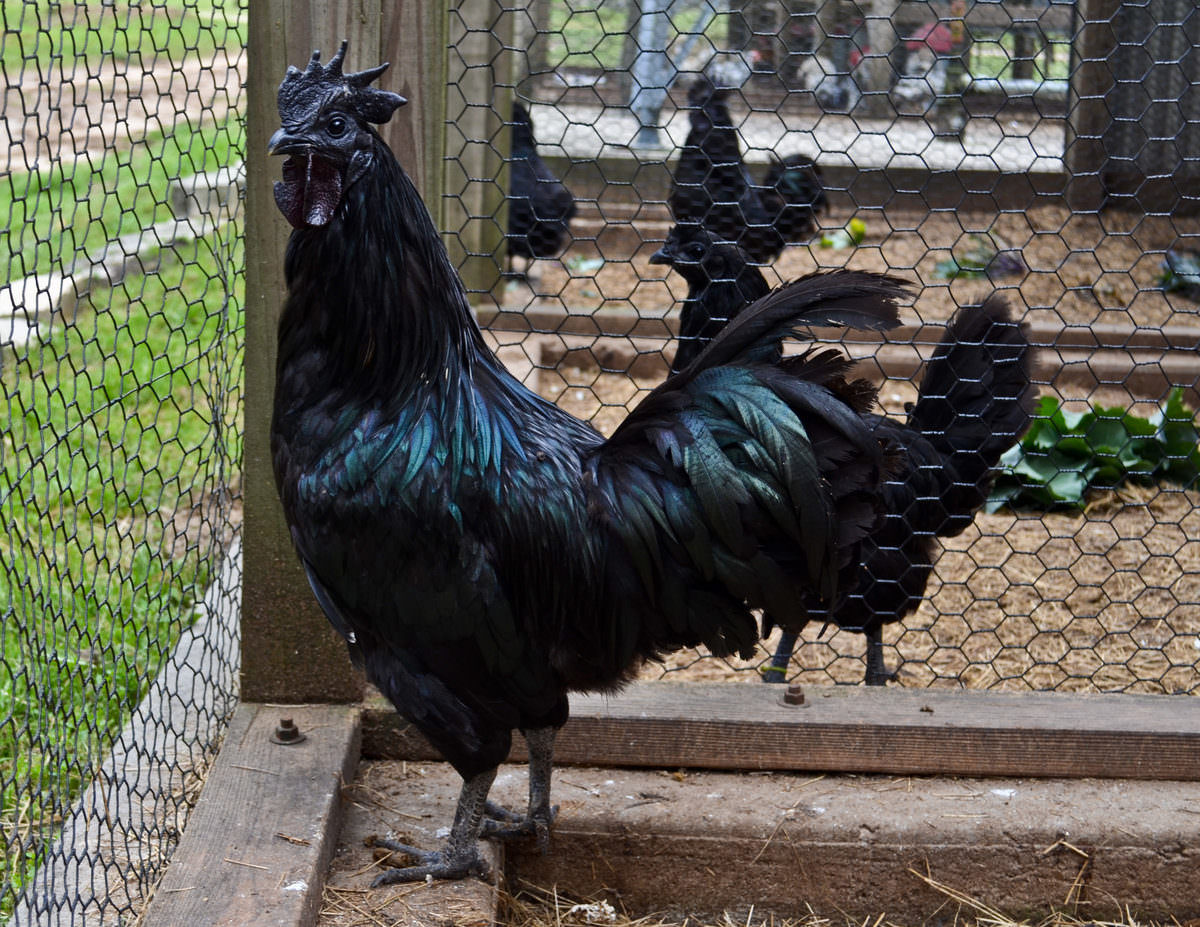Forget purse snatchers; in the UK, you need to watch out for poultry snatchers.

The United Kingdom’s leading rural insurer, NFU Mutual, tells Farmers Weekly that as part of its annual survey in rural crime, it has identified a rise of thefts of exotic chicken breeds, including Burmese Bantams, Polish Frizzles and Silkies, that can go for between $60 to nearly $300 per bird. And to add insult to injury, the miscreants are also stealing the elaborate (and pricey) chicken coops some backyard enthusiasts have for their flocks. While the numbers are relatively small, thefts are up by one-third from the previous year, and NFU Mutual believes more snatchings have gone unreported.
Last month, for example, seven rare-breed chickens were plucked from a primary schoolyard in Trowbridge, located in Southwest England, leaving many of the school children in tears over the loss. The police force that covers the counties of Herefordshire, Shropshire, and Worcestershire in England received 60 reports of stolen chickens in a three-month period last year, while Norfolk police handled the thefts of 124 “hipster hens” in just a two-month period in 2014, according the Telegraph.
“Thieves are clued up on which birds to target and how much they are worth either for resale or breeding purposes,” Philippe Wilson, vice-chairman of the UK’s Rare Poultry Society, tells the Yorkshire Post. “We have seen people selling fertile hatching eggs of the extremely rare, and all black, Ayam Cemani for over £1,000 [$1,436].”
Closer to home, the United States has also seen an uptick in people raising rare chicken breeds, and their prices follow suit, according to Jeannette Beranger, research and technical programs manager for The Livestock Conservancy, a non-profit dedicated to preserving and promoting heritage livestock and poultry breeds. “We are just finishing up a poultry census for the U.S., and there are a good number of rare breeds on the rise,” she tells Modern Farmer in an email.
That said, Beranger has only seen “occasional thefts” at some of the poultry shows she’s attended here in the States. “For more common chickens, they are probably stolen to be eaten. Some of our local poultry keepers have had this happen fairly often with their chickens, ducks, and turkeys,” she says.
John Monaco, the president of the American Poultry Association, tells Modern Farmer that while heritage breeds have become more popular, he hasn’t seen an increase in poultry thefts like the UK has. The occasional incidents the APA is aware of usually involve the theft of only a limited number of the best birds from farms, he says.
But Beranger points out another related issue: buyers getting scammed by unscrupulous dealers. “We tell people if you are paying high prices, to make sure they know what they are buying and ask if the birds meet the breed standards set by the American Poultry Association,” she says. “If they don’t meet the breed standard, they should not be paying exorbitant prices. Birds should also come from a National Poultry Improvement Program (NPIP) certified flock.”